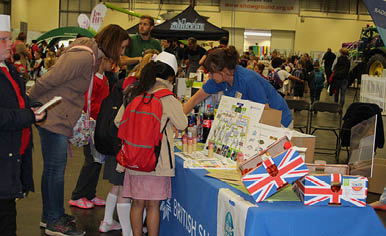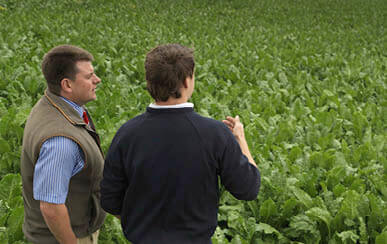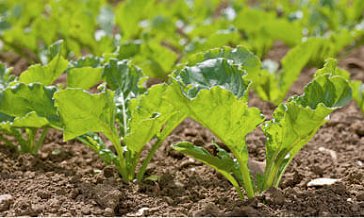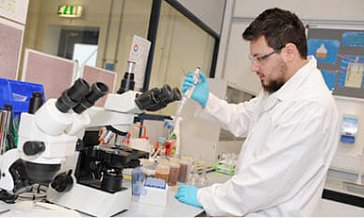
Environmental
Case study
ENVIRONMENTAL: CONSUMING RESOURCES RESPONSIBLY
15 January 2024
Innovating on-farm for more sustainable agriculture
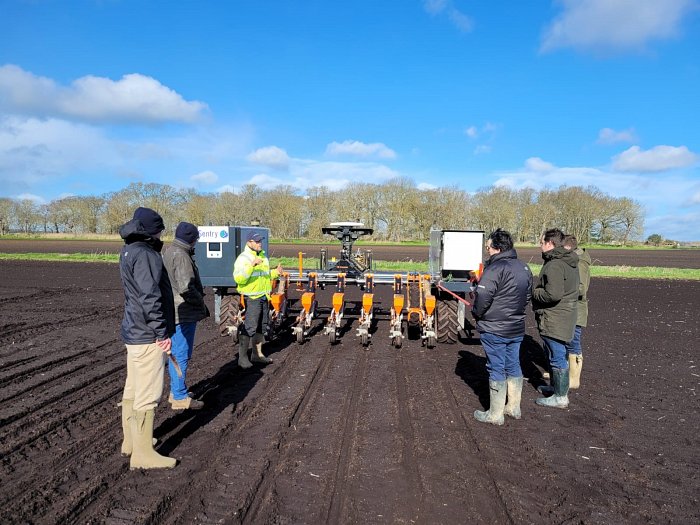
This year, in collaboration with third parties, British Sugar has tested the viability of two robots. The potential benefits of using these will help the beet sugar industry to deliver our targets of reducing our emissions and ensuring we have resilience built into the industry. We are looking to reduce reliance on plant protection products and reduce the greenhouse gas emissions of growing sugar beet: the Robotti in collaboration with Sentry, the British Beet Research Organisation (BBRO) and Autonomous Solutions, and the FarmDroid in collaboration with Opico.
Controlled by GPS, the robots autonomously plant sugar beet seed and carry out subsequent weed control, with the ultimate aim of boosting the quality and yield of the crops whilst reducing inputs. With lightweight structures and efficient processes, the robots have minimal impact on the environment and there is less erosion and compaction of the soil.
The use of robots has major potential in agriculture and we are evaluating the practicalities and affordability of this technology to build a more sustainable future for sugar beet.
The Robotti is an autonomous implement carrier. Its current set up uses a band sprayer to only spray the sugar beet rows, with the interrow space being hoed - this reduces the herbicide requirement significantly. The Robotti system also has the ability to identify and map a number of weed types by taking 1000 high resolution photos per hectare. This data can then differentiate between the sugar beet plants and the weeds, and spot spray accordingly. The system has the ability to learn, continually improving its accuracy as it increases the number of passes it makes.
Andrew Dear, Head of Technical Support in British Sugar’s Agriculture team, said, “We are proud to partner with Sentry and the BBRO to implement the Robotti to look at how we can make growing sugar beet more sustainable in the future. This technology is a significant step towards more efficient and sustainable agricultural practices, and we look forward to seeing the benefits it will bring to the industry.”
John Barrett, Director of Sentry, added, “By partnering with British Sugar and BBRO and implementing the Robotti, we are taking a major step towards a more sustainable future for agriculture. This technology will not only improve our planting process, but also help to reduce our environmental impact and promote more efficient use of resources.”
The FarmDroid is a fully automated, self-contained robot that both seeds and mechanically weeds without the need for additional implements. It is driven by a solar panel, making it a CO2 neutral operation, and using GPS ensures precise placement of each seed. With clear knowledge of where the seeds have been placed weeding can start before the crops are visible and is carried out inter-row and intra-row, eliminating the need to spray herbicides.
Anthony Hagen, Crop Production Manager at British Sugar, said, “Using the FarmDroid to plant and weed one of our fields has been a great insight into the potential benefits robot technology can offer. The FarmDroid works to a high level of precision and detail. We learnt a lot and identified many opportunities to keep improving and advancing the technology forwards for an exciting sustainable long term solution.”
These partnerships are part of a larger effort to promote sustainable agriculture and reduce the industry’s carbon footprint. The organisations involved are dedicated to exploring new technologies and practices that can help to improve the quality and yield of the crops, while reducing their environmental impact.


